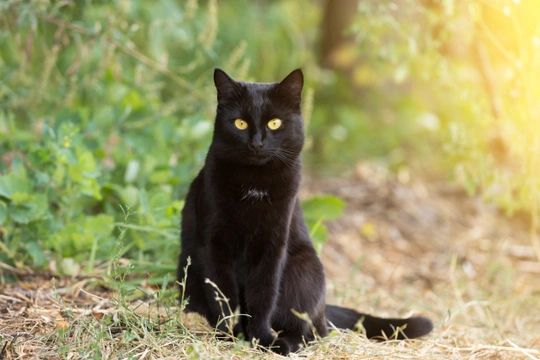
3 reasons for black cat bias
Cats are amazing creatures, aren’t they? They’re independent, have a calming presence and make wonderful companions. They’re even said to play an integral role in Zen Buddhism. But black cats suffer from discrimination — they are adopted less, euthanised more, and generally thought of as ‘bad’. What’s the reasoning behind this black cat bias and how can we overcome this to become more inclusive in the cat world?
There seem to be several reasons why people discriminate against black cats, the most ludicrous of which is that they don’t show up well in selfies. Luckily some black cat owners have spoken out to say that this just isn’t true and that their cats constantly act like they’re on fashion shoots! Jokes aside, the fact that black cats are not ‘photogenic’ means they’re generally adopted less. The other reasons appear to be more emotional and cultural…
Superstition
In many cultures black cats signify bad luck: symbols of death, illness and bad fortune, the connotations are not good. They’re often linked to witchcraft and are even thought to be witches in disguise. The colour black, as we know, is often linked with death in many Western cultures and the appearance of a black cat was never good news. Luckily, there are many cultures in which black cats are considered in a favourable light. Egyptians held black cats in high esteem due to their likeness to the cat-like Goddess of fertility, home and protection from disease. In several European countries, a black cat is considered a positive sign and in Japan, it’s thought to bring luck in your love life. Although we can write off superstitions as nonsense, they continue to have very real effects on people’s actions. Let’s change that narrative for good!
Facial expressions
People tend to think that it’s harder to read the expressions of black cats and so, they can come across as being less friendly. In fact, for most people it’s hard to accurately read cats’ expressions, except for those we consider to be ‘cat whisperers’, and so to single out black cats seems a bit unfair! Perhaps this highlights an opportunity to take a closer look at our feline friends as unique individuals instead of blaming their colour for our inability to read their signals.
Alleged unfriendliness
Black cats are often labelled unfriendly or even aggressive. It seems the bias is deeper embedded in our psyches than we think. There’s no evidence that black cats are more aggressive, but it does relate to the previous point about people having difficulty reading their expressions. In psychology, the question is also raised as to whether our bias towards black cats has perhaps influenced their behaviour. If a group of people consistently discriminated against you, wouldn’t you be a little unfriendly towards them? Maybe. It makes you think about our own behaviour and how we also have a huge role to play in how domesticated species evolve and are portrayed.
The underdog that is the black cat is indeed a symbol that brings up strong feelings in humans. The more we examine our thoughts and behaviour towards them, the more we can learn about them and ourselves. Could it just be a case of learning to take better pictures? Or simply recognising the good in every creature, regardless of colour?



